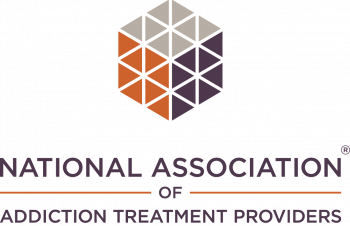Alcohol addiction is a complicated disease. It creates physical changes but also can worsen mental health disorders. Addiction can cause those predisposed to mental health disorders to suffer from those symptoms. It may worsen symptoms of an existing depression, anxiety, or bipolar disorder as well. At TruHealing Gaithersburg, we offer alcohol addiction treatment and tools that can help you overcome these complications.
How Is Mental Health Impacted by Addiction?
Drug addiction can cause short- and long-term changes to the brain. In some situations, this causes changes to mental health. It can bring on or worsen conditions such as anxiety, depression, paranoia, and aggression. Some people may struggle with bipolar disorder or post-traumatic stress disorder as well. It is common for people with addiction to be diagnosed with one or more of these mental health disorders.
Signs of Mental Health Issues and Alcohol Addiction
How do you know if an underlying mental health problem exists if you are using alcohol? It is hard to diagnose outside of a professional setting. However, some signs you may have both conditions include:
- Using alcohol to deal with stress
- Not being able to get through the workday without a drink
- Needing to have a drink after a long day of being around loved ones
- Using alcohol to stop negative thought patterns such as self-hate or guilt
- Feeling the need to always drink so you don’t have to think about the past or life
In each one of these situations, a person is faced with the need to use alcohol as a way to deal with the symptoms of underlying mental health disorders. Keep in mind that some people do not develop these disorders until after they are drinking consistently.
Understanding Co-Occurring Disorders
Struggling with alcohol use along with mental health disorders is called co-occurring disorders. That diagnosis is important. Those with it will get help for both conditions at the same time, allowing them to gain support for what’s really happening.
For example, a person struggling with post-traumatic stress disorder from abuse when they are young may use alcohol as a way to drown out those negative images and feelings. Treating the addiction, which may be the more obvious condition, is important. Yet, that doesn’t treat the trauma. That means the individual is at a higher risk of relapse as a result.
The same applies to disorders like anxiety and depression. Without treating these, the addiction can come back as well. Treatment for both conditions at one time is called dual diagnosis. It can be very effective at helping people to regain control over their health and mental wellbeing.
Dual diagnosis may include the use of medications to create more stability in mental health needs. Medications can also help with alcohol addiction by reducing withdrawal symptoms and cravings. Yet, in both cases, treatment needs to focus on psychotherapy. This addresses both components of a person’s health while also creating real-life tools and strategies for dealing with stress.
How to Get Help for Mental Health and Alcohol Addiction
We can offer treatment for co-occurring disorders at TruHealing Gaithersburg. This includes addressing the many complications a person has as a result of these conditions. To learn more, check out our program options and therapies. Then, reach out to us to get an assessment.
- Women’s rehab center
- Men’s rehab center
- Partial hospitalization program
- Intensive outpatient program
- Outpatient treatment program
Protect Your Health – Call TruHealing Gaithersburg Today
If you’re facing alcohol addiction and mental health complications, now is the best time to reach out for help. To learn more about the tools we can offer, call TruHealing Gaithersburg at (833) 625-0398. You can also reach out to us online for more information.









